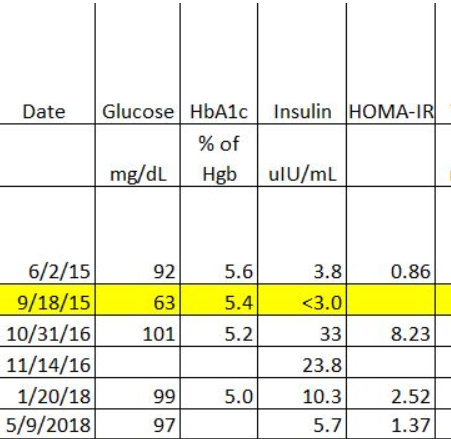I have been intermittent fasting, eating low carb (less than 20 carbs a day or at 20 carbs a day). This has been a challenging but beneficial experience, where I have lost almost 100 lbs and have regained a considerable amount of energy. I also take Metformin 500mg bid, Vitamin D3, Alpha Lipoic Acid 600mg, Turmeric 2 g, Astathaxin 12 mg.
I have been fasting on a 42 x 3 schedule, with a 18 hour fast on Saturday until Sunday. I don’t vary this schedule much, and if I do I add a four day fast from Sunday to Thursday occasionally.
Why all of a sudden, can I not get my blood sugar under 110 to 100? I have not changed my diet and all of a sudden, it is running 20 to 30 points higher. Previously it was 80 to 95 pretty frequently. This is incredibly frustrating, and I am 111 right now but 41 hours into a four day fast.

